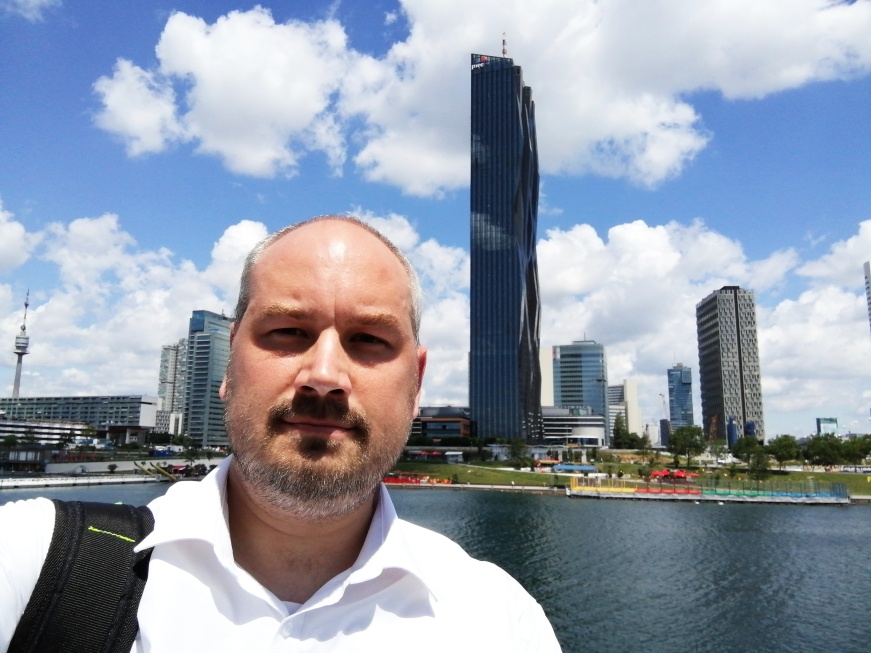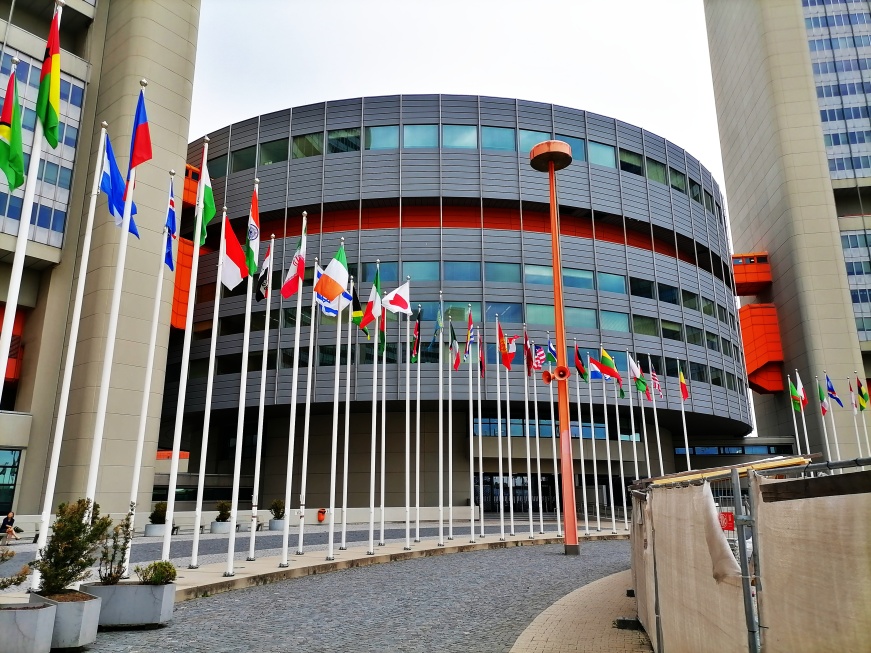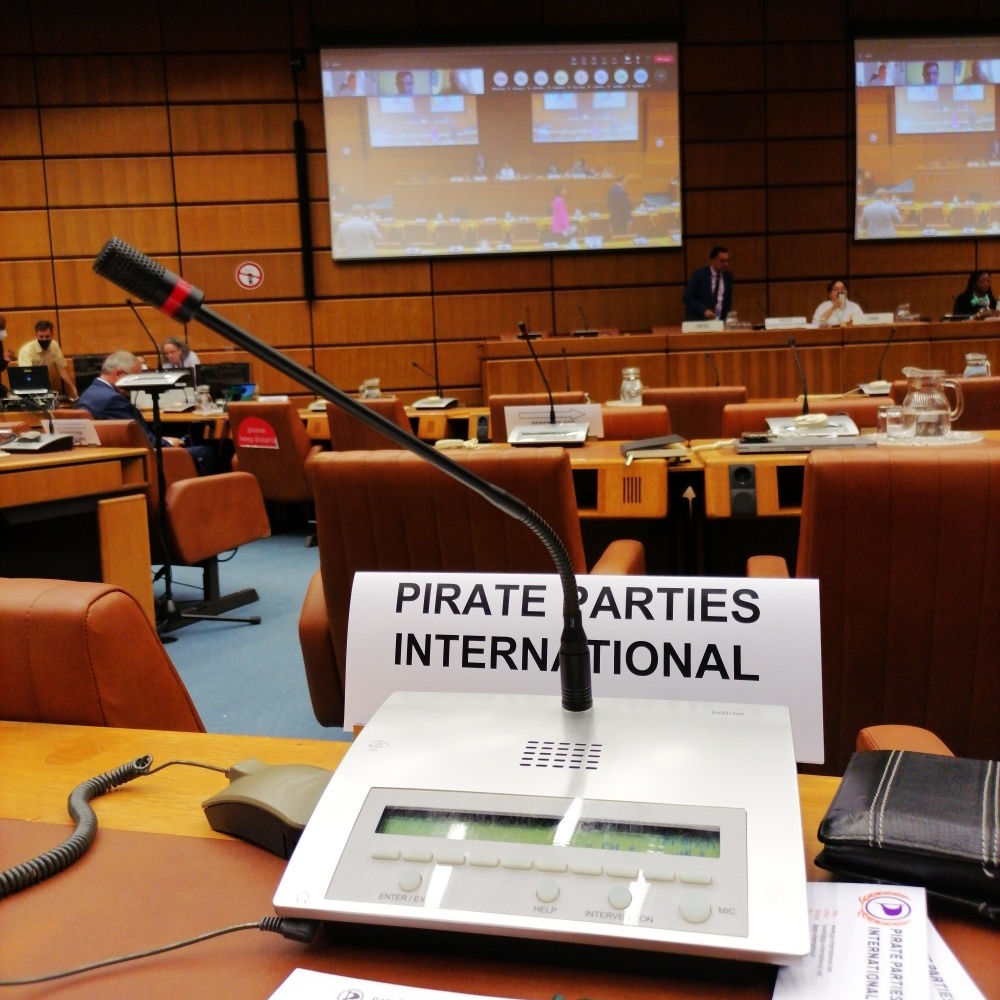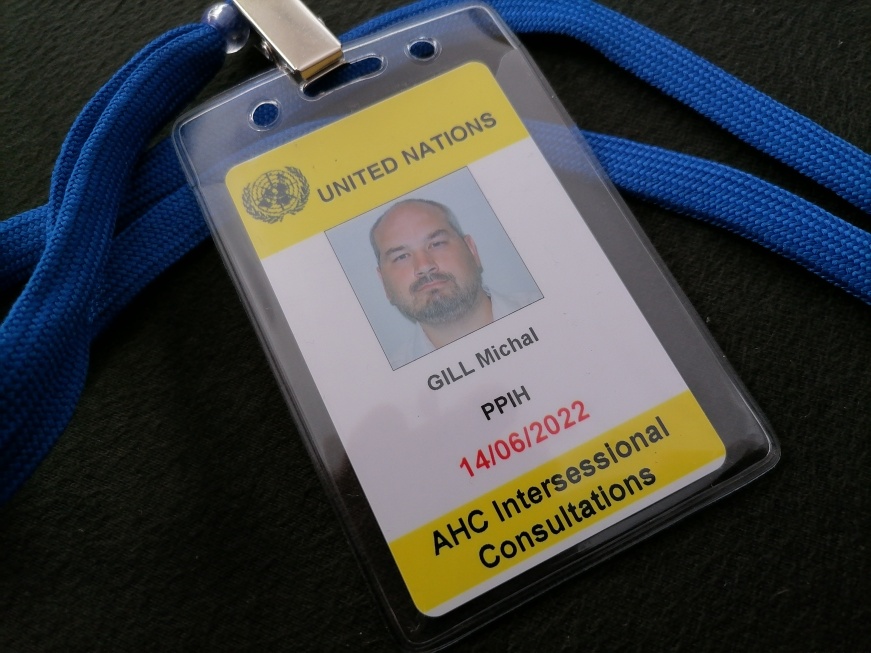New UN Convention on Countering the misuse of ICT for Criminal Purposes

Pirate Participation on the Work of the United Nations’ Ad Hoc Committee to Elaborate a Comprehensive International Convention on Countering the Use of ICT for Criminal Purposes
This article is meant to inform you on the progress of creation of a new UN convention, whose goal it is to standardise member states’ approach to cybercrime and lay foundation to processes that will help fight forms of crime that knows no borders in a world that certainly still does have them. The PPI took interest from the very start of this initiative and now I took special interest in this topic and personally participated in it. Below follows my take on the progress being made on this particular new treaty as well as a general description of processes taking place within the UN structures. Hopefully, it’s going to be informative to you:
By the Order of the General Assembly
The roots of the convention being created stretch quite a few years back, to the General Assembly’s resolution to form a committee. It was adopted on Christmas of 2019, just before the COVID-19 pandemic has started. The resolution numbered 74/247 has therefore not really been implemented right away and the pandemic postponed the forming of the Ad Hoc Committee that is now putting together the text ordered by the GA.
Ad Hoc Committee
There have been multiple attempts by the UN to fight cybercrime in the past. But by its very nature, this is by far the most inclusive one yet. By another resolution of the UN General Assembly (75/282) the chair of the committee is specifically encouraged to hold consultations with stakeholders to gather a range of inputs as wide as possible and to make the result as acceptable to the professional community as it shall be to the UN member states voting on it. Luckily for the PPI, one of the criteria by which an eligible stakeholder has been determined is a consultative status with the UN Economic and Social Council (ECOSOC), which the PPI currently enjoys. This status allows us access to various UN events, participation on putting together this convention being one of them.
Intersessional Consultations
The UN, by its very nature, is a conservative organisation, where national delegations play the most important role. They are the ones to form the Ad Hoc Committee tasked to hammer out the final text of the convention and then vote on it in the General Assembly. Only a lesser part is reserved for other stakeholders, but we’re grateful it’s there at all. This hasn’t always been the rule in the past.
The first real session of the Committee only took place in February of this year in New York and the PPI provided a short annotation to it, presenting our opinion on what values the draft shouldn’t omit. Afterwards a first so called “intersessional consultation” has been organised in Vienna in March of this year. Then a second session of the Committee was held in Vienna in the past weeks, immediately followed by the second consultation, at which I had the honour of representing the PPI.
I’m being naturally sceptical of the UN’s work, it having time and time again falling short of the lofty goals that it often sets to itself, but I also admire it as symbol of progress of slowly turning our planet of hundreds of warring nations to a world where preservation of peace and human dignity is paramount, or is at least loudly proclaimed to be as such on paper, even if that is, once again, not always the case on the ground.
Vienna, June 13th and 14th 2022
The timing was right, my work allowed me to be absent for a few days and my other Pirate “job”, being the head of the Czech Pirates’ Foreign Department, helped me with funding the trip. It was time to go to Vienna, a city still smelling of beer after Saturday’s Gay Parade, yet with atmosphere of a optimism and equality in the air, rainbow flags still on most public buildings and trams.
The Vienna’s UN seat, third most important one after New York and Geneva, is a permanent HQ of multiple UN organisations, most prominently the International Atomic Energy Agency (IAEA). But one of the lesser known ones is the United Nations Office on Drugs and Crime (UNODC), which is the one responsible for making this new convention a reality.
The consultations were held in hybrid form in one of the two main chambers of the Vienna International Centre (VIC), which is the official name of the place. This consultation has been split into four sessions over the course of two days, each having up to three hours of time set aside, one in the Monday morning, one in the afternoon and repeat on Tuesday. They were split by the particular topic they sought to discuss with the representatives of the stakeholders as well as of some countries. Typically about 20 to 30 organisations/countries were present in the chamber and perhaps 60 to 80 online.
International Cooperation, Technical Assistance, Preventive Measures and Mechanism of Implementation
These are the topics of the four sessions. I was present for all of them but was more active in some than in others. For example in the Technical Assistance one I was way out of my depth while the Mechanism of Implementation one felt so broad that very few people participated and I’m still not sure what it was actually about. The other two though were a different story.
Each session was structured in the same manner:
- ten-minute speeches by selected panellists
- questions from the floor aimed at the panellists
- open mic for everyone to express their hopes for the final text
In the International Cooperation session, most good points got made by a representative of Microsoft, of all people. I was a bit surprised but then I understood why I felt like if he has stolen my notes in advance. Microsoft’s goals in this area are somewhat similar to ours. We both mainly aim to limit the governments’ powers and preserve the right to privacy to us, the general users of ICT. It makes sense. One of the good points raised here by Microsoft and then seconded by me was the need for an independent judicial review whenever law enforcement of one country requests data related to a potential crime from the law enforcement of another country. A situation that would look similar to an extradition of an actual person today. And based on multiple opinions from the floor and the panellists, the law enforcement’s cross border handling of information today is way too liberal and mostly informal. If this convention has even a single line that would aim to make this process more formal and thus safer for the person whose data are being exchanged, I’ll consider that a victory.
Preventing crime is nice but the net cannot be cast so wide as to encompass everyone
The session on Preventive Measures on Tuesday morning was the one closest to my heart, and probably to the heart of every Pirate on the planet. It’s the fundamental topic of all our parties, the right to privacy of individuals and the opposing force of desire by countries and their law enforcement agencies to prevent crime, often by trampling on privacy of their citizens. Multiple stakeholders took the floor in defence of privacy and so did I on behalf of the PPI. The chairman specifically asked for us to say what we want to see in the convention and, more importantly to me, what we do not want to see. Hence I chose the latter course of painting a bleak future where all online communication is automatically surveilled by automatic filters and reported to the authorities if suspected of a crime. And it’s not just a dystopia of the future, I named names. Because just last month the European Commission came with this draconic solution, masking it with a noble goal of fighting child abuse and spread of child pornography.
Never do I want to see a world where there’s no right to private communication and everyone is automatically surveilled by faceless computers, which, by most statistics, give way more false positives than they are actually capable to tell whether a crime is truly being committed. I also mentioned a recent ruling by the Court of Justice of the European Union, which (in a case of online uploads) very much stated that automated filters can only be used if they are able to recognize (and not even automatically block!) lawful uploads. If this high standard is to be respected when it comes to uploading videos on YouTube, surely no lower standard will suffice when it comes to privacy of private communication, including one with end-to-end encryption. And that’s the ruling of a court with one of the biggest jurisdictions in the world and in the most progressive part of the world.
I closed my argument by a simple statement, that everyone’s fundamental rights cannot be trampled in order to crime fight. That’s why they’re called fundamental. And having that enshrined in the convention is my ultimate goal in this whole process.
Next Steps
Now, the chair of the Committee will put together a report from the consultation and publish it. The member states will then, hopefully, take our input into consideration when they meet in New York in August and September to actually work on the wording of the convention. Now, I can only hope and wait and if there will be another consultation after this next session, we badly need to be in that room to make sure our voice is being heard. UN conventions aren’t really laws per se but it’s really hard for most countries to break clearly stated rights enshrined in them. We just have to make sure that the final text contains those rights.
I apologise for an article that’s a bit longer than I intended but, in the immortal words of Abraham Lincoln: “I could write shorter sermons but when I get started I get too lazy to stop.” Hopefully it gave you some insight into the topic and maybe even to inner workings of the UN as a whole. And that’s all I wanted.
Mike Gill, PPI General Secretary, Czech Pirate Party



